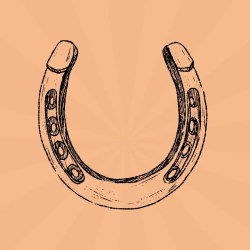What if the smartest leader in the room is the one who knows how to step outside their own story?
In this week’s episode of Daily Creative, I was joined by L. David Marquet, author and former nuclear submarine commander, to dissect the overlooked superpower of “distancing.”
Marquet calls the dynamic of being stuck in your own head the “immersed self”, and it’s one of the reasons that many leaders and creative pros feel trapped in a cycle of boredom and unproductive effort.
Here are a few of my takeaways from our conversation:
1. “Your best work starts when you dare to step away from your own legacy.”
Ever notice how yesterday’s brilliant decisions can box you in today? Marquet recounts working with leaders who struggle to question their own processes simply because they were the architect. The hard truth: our accumulated decisions become blinders. To break the cycle, ask what you’d do if you just started today, or if you were stepping into your own role fresh—no baggage, no ego. This clears the field for real innovation.
How might your decisions change if you acted as if today’s status quo wasn’t yours to defend?
2. “Future-you is wiser than now-you—let them make the call.”
The “regret minimization framework” made famous by Jeff Bezos (and echoed by Marquet) is more than clever hindsight; it’s actionable foresight. By imagining yourself decades down the line, you bypass the anxieties and compulsions of the present. Future-you doesn’t sweat the petty stuff—they only care about decisions that truly matter. Try journaling or walking through a tough decision as the 80-year-old version of yourself.
If you called your older, wiser self for advice right now, what would they urge you to do next?
3. “Distance isn’t just spatial—it’s psychological, and you can create it anytime.”
Getting stuck in a problem is usually a perspective issue. Marquet shows that asking subordinates to literally sit in his seat—and solve problems from his angle—transformed their responses, not because of added information, but because of changed perspective. You can engineer this shift yourself: move your body, journal as a “third party,” or physically leave your workspace for a new vantage.
What current challenge would look entirely different if you could view it from across the room, or even from another continent?
4. “Being immersed is normal; noticing it is the secret.”
We’re wired to view everything from our own point of view, especially under stress or criticism. David points out that public mistakes, unexpected changes, even hallway gossip, can all pull us deeper into a “me-centered” loop—making feedback feel like an existential threat. Recognizing these immersion triggers is the first step to regaining objectivity.
When was the last time stress made your perspective narrow? How might you have responded if you’d recognized the warning sign?
5. “Creative breakthroughs come after you step back, not after you push harder.”
The difference between reacting and choosing is often a matter of distance. Distancing—by time, perspective, or even pretending to advise a friend—gives you agency over your decisions. Even small shifts, like journaling as your future self or seeking feedback from outside your own head, can reframe your options and help you break out of the urgency trap.
What in your work or life feels too close to be seen clearly, and what’s one way you could pause and zoom out for a better view?
Remember, the moments that define your legacy won’t be delivered to your inbox with a neon highlight—they’ll show up disguised as distractions or easy choices.
As David put it: “Be your future self. Don’t consult your future self.”
This week, choose one tough decision and, just for a moment, act from the perspective of someone smarter and braver—whether it’s future-you or simply someone with nothing to lose. You may be surprised what emerges when you step outside your own story.
















